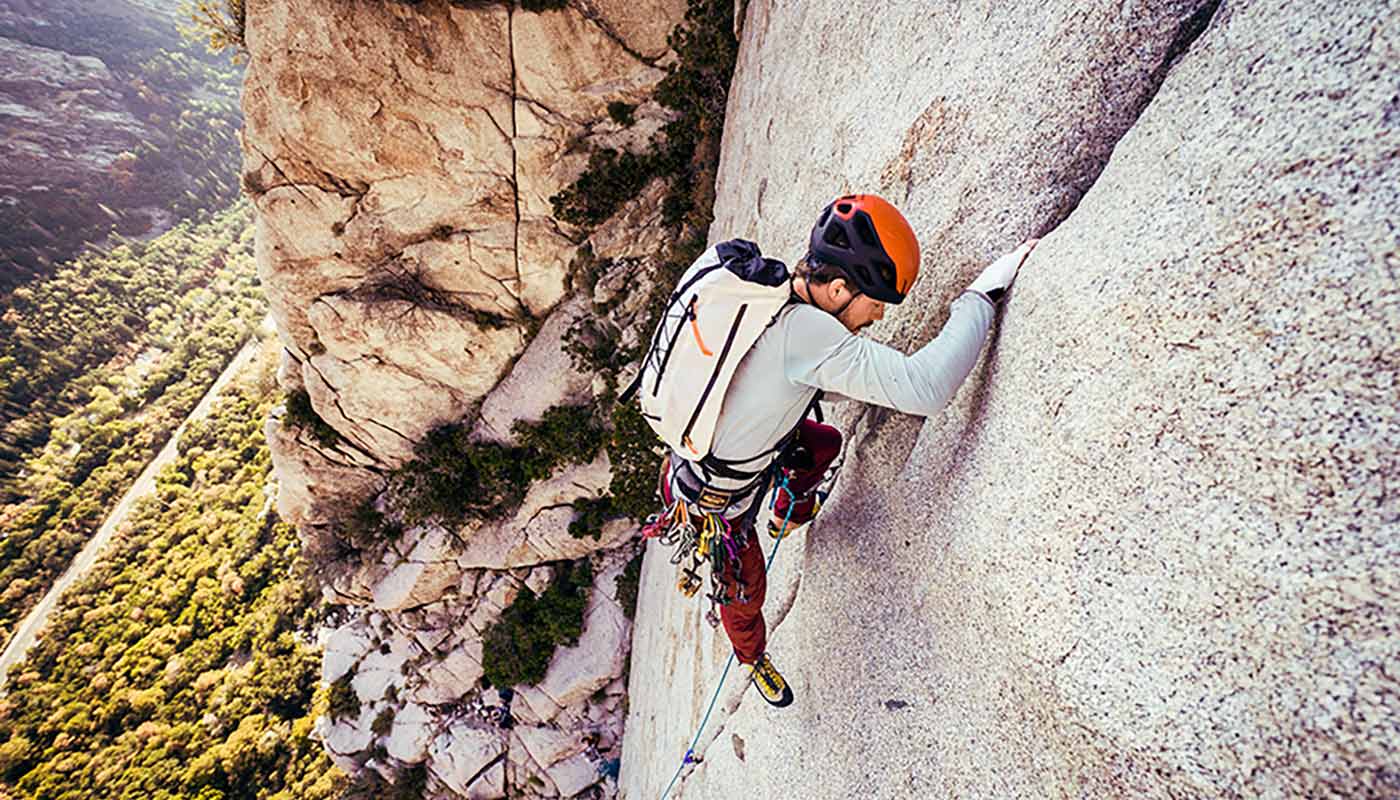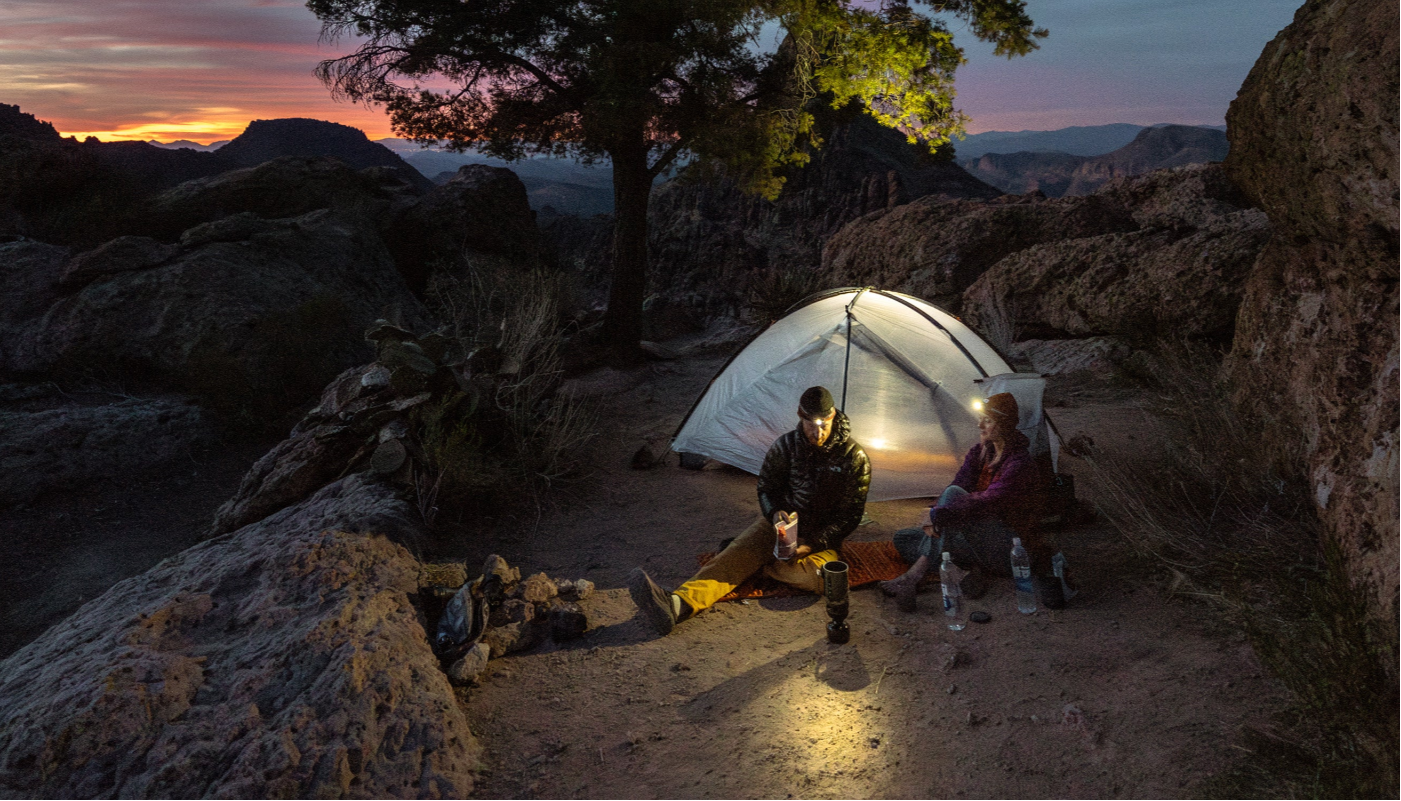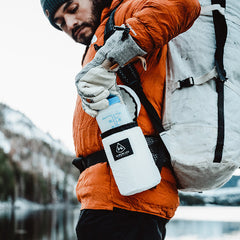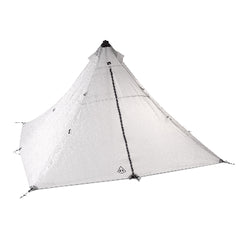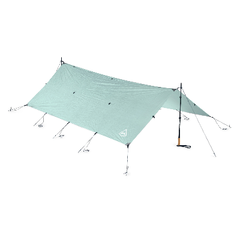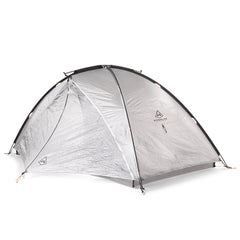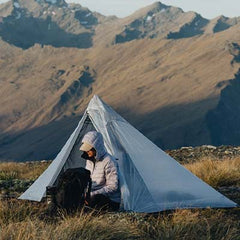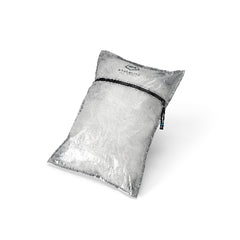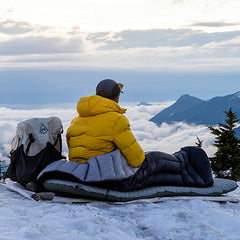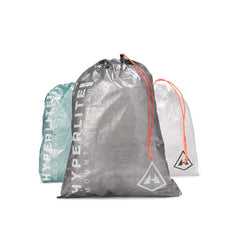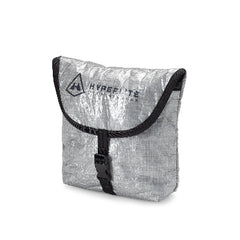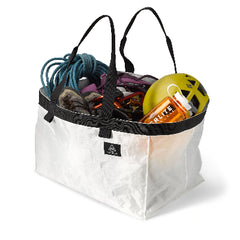Words and Photos by Peter Gierlach @petergierlach - YT

There is nothing quite like a slow saunter through the woods.
I know, I know. We live in an age where “sauntering” doesn’t come up in the adventure space.
Instead, the quality of time in nature is often assessed by performance metrics.
How many miles were covered? What was the pace? How much elevation gain did you accumulate? How high’s the peak? How fast did you get there?
Faster. Farther. Higher. Longer. Harder.
The gods of modern adventure culture.
This productivity-based, performance-obsessed mindset is becoming more prevalent in the adventure space. I read about it, see films celebrating it, and recently listened to a table at a café loudly brag about their success with it.
It appears today that, with each landscape, there is a new “first route”, a more intense FKT, a higher summit to compare yourself to.
All of this accomplishment makes it seem like these landscapes exist as an outdoor gym for our own improvement - or worse, a background scene that graces our relentless push for productivity, self-optimization, and performance - rather than beautiful ecosystems that should be savored.
 But is there much difference between grinding up a trail for a new PR and grinding at the office to launch that new project? Aren't you just trading a window view for a mountain vista?
But is there much difference between grinding up a trail for a new PR and grinding at the office to launch that new project? Aren't you just trading a window view for a mountain vista?
I know of broken souls who will not hike to a pristine lake in an isolated wilderness in order to enjoy a small fire, delicious lunch, and a refreshing dip - perhaps even a long nap.
Why?
Because they’re so wrapped up in a performance mindset that they can't enjoy an environment for its own sake. They're working towards some goal. They have more peaks to summit. They are training hard for the next event. And they can’t waste the time or energy on rolling terrain and small pleasures when there are big things to accomplish.
Why would I spend a day doing that when I could bag two more High Peaks in the same amount of time and mileage?
Well…because it’s delightful. That’s why.
It saddens me to see the outdoors falling prey to the same cultural forces that deaden our experience of other areas in life: overconsumption, self-optimization, productivity, speed, achievement.
We in the outdoor space are quick to scoff and scold when we see someone drop a bag of chips on a trail, light up a cigarette in a fire-prone National Park, or fail to follow Leave No Trace principles. Because we love nature, of course, and are determined to protect it.
But do we actually love it? Or do we just use it as the playground for our drive towards personal satisfaction?
 I often see the same folks who vow to Leave No Trace parked on the side of the road in a miles-long line for a popular hiking area near me. These peaks are overrun and cannot handle the current usage. They are in ecosystems that are sensitive, on trails that are muddy, in zones that the Park service pleads for people to avoid in order to allow the land a chance to breathe.
I often see the same folks who vow to Leave No Trace parked on the side of the road in a miles-long line for a popular hiking area near me. These peaks are overrun and cannot handle the current usage. They are in ecosystems that are sensitive, on trails that are muddy, in zones that the Park service pleads for people to avoid in order to allow the land a chance to breathe.
There are plenty of other beautiful places in this region. Go explore those!
But they can’t. Because those beautiful places aren’t tall enough. Aren’t grueling enough. And you don’t get a patch for being there a certain number of times.
I won’t litter. I’ll pack out my trash and my poo. But don’t you dare tell me to keep my feet off this trail. I have goals and limited PTO - don’t you understand?
This raises the question: Would you be willing to not visit a place in order to protect it? Or is the lure of performance too seductive?
It’s easy to care for nature until caring for it gets in the way of our sense of achievement.
Which is why I don’t care about your FKT or your total mileage or the elevation that your selfie was taken at.
I care about where you are and how it inspires you. I care about how your adventure makes you a better person. The numbers, the labels, the accomplishment - none of those matter.
Therefore, I propose a simple solution to this pervasive culture that we are faced with:
We must treat our time in nature more as refuge, and less as performance.
This is the way it used to be before the corporate busy-bodies got involved and sold us the idea (and gear) that outdoor adventure is just another vehicle for achievement.
The travelers in early-modern Europe didn’t brag about peak elevation. They traversed mountain ranges out of necessity and took special note of their beauty.
The climbers in Yosemite during the 60s weren’t there to glorify their ascents for strangers. They were there to climb for personal satisfaction in the experience.
Adventure surfers in the 70s weren’t bumming around the world to measure the height of the waves and submit it for record consideration. They were just chasing good swell.
Earl Shaffer, the first Appalachian Trail thru-hiker, didn’t walk from Georgia to Maine to hit a good pace, set a record, or look impressive to others. He went to “walk off the war” after returning home from serving in World War II. It was one long therapy appointment.
Nature as refuge.
The greatest thinkers and philosophers and spiritual teachers throughout history all touted the healing, inspiring, transformative effects of time in nature for its own sake. And so do the more old-school, “what’s-it-all-for” adventurers like Yvon Chouinard and William Finnegan.
Personally, I’d rather follow in their footsteps than the ones tracked on AllTrails.
Kept a pretty good pace on this mountain. Decent peak. But not nearly as tall as the one’s I’ve climbed in Colorado. Kind of lame. Three stars.
I couldn’t care less, AllTrails user.
In Reconnection, Professor Miles Richardson explain that a deep connection with nature requires slowing down and paying attention to our surroundings rather than just moving through them. His conclusion is that the person who spends time mindfully walking through a tiny patch of suburban woods while identifying the plants and animals and noting their changes throughout the seasons is more connected to the outdoors than someone who spends a week sprinting through some trail to hit a certain time on their watch. In the latter case, nature is merely a background setting for performance. In the former, it becomes an extension of the self.
Sure, you may be able to run really fast or climb really high through a landscape. But do you actually know the landscape you’re pushing through? The trees, the plants, the mammals, the insects? Do you respect their right to life? Or are you willing to trample over them as obstacles on your path to glory?
We shouldn’t bring the destructive aspects of burnout culture outside the office and into our forests, rivers, and lakes. We need to keep these places sacred. They must remain spaces for contemplation, connection, and restoration. Especially if we want to protect them.
 A slow saunter through a rolling woodland, stopping by a pond for a nice lunch, and staring into the distance for an hour or two before packing up does wonders for the soul. I know this because, when I pass the runners on these trails, their faces project a misery and discontent that I was able to relinquish in myself at the lean-to. Back there, I became content. But I know they won’t be happy until they get to a different “there”: the right place, at the right pace, in the right time, with the right amount of energy.
A slow saunter through a rolling woodland, stopping by a pond for a nice lunch, and staring into the distance for an hour or two before packing up does wonders for the soul. I know this because, when I pass the runners on these trails, their faces project a misery and discontent that I was able to relinquish in myself at the lean-to. Back there, I became content. But I know they won’t be happy until they get to a different “there”: the right place, at the right pace, in the right time, with the right amount of energy.
And when they do arrive “there”?
Well, they never do. Once a goal is met, the ego remains unsatisfied, and the drive for more continues.
And so does the consumption, the degradation of the ecosystem, and the lack of appreciation for the very landscapes that we need to be working to protect - which can only happen through a deep sense of connection.
Until all of that changes, until the push for more has a definitive endpoint and the egos of these people can be satisfied, I’ll remain unconvinced that adventure performance should be promoted more than the philosophy of nature as refuge.
And if this idea offends you, take me up on a challenge:
Come join me at the lean-to, by the pond, at a low elevation, where there is zero sense of accomplishment. The pace will be slow. The pictures will perform poorly on social media. No goals will be met. No one will care.
But the answers you seek within yourself will be found in a soft gaze directed towards the horizon.
And I promise: I won’t ask about your FKT.

